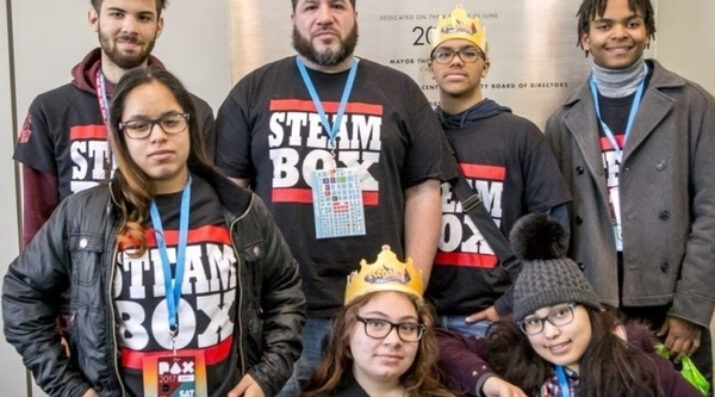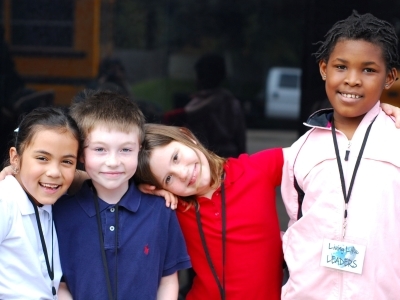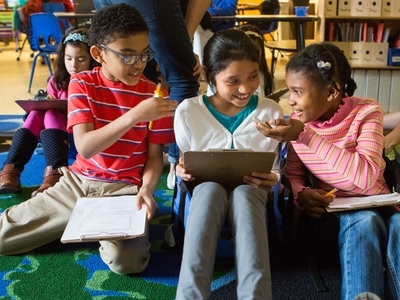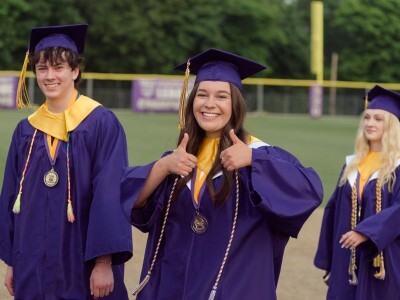Why Is Our Education System Stuck in the Industrial Age?
Topics

Today’s learners face a rapidly changing world that demands far different skills than were needed in the past. We also know much more about how student learning actually happens and what supports high-quality learning experiences. Our collective future depends on how well young people prepare for the challenges and opportunities of 21st-century life.
Q&A with Roberto Gonzalez, Executive Director, STEAM Box Rhode Island
The school system is an antiquated system built for the industrial age, to keep people in line with their social, economic, racial, and gender class. We need to renew the idea of what public schools should be.
The Reciprocity Project is a coalition of nonprofits, community organizers, and education innovators that are working together to build a new kind of school from the ground up. This work is rooted in reciprocal relationships, where the voice and ownership of stakeholders will create schools that are truly in service to their communities.
This interview with Reciprocity Project member Roberto Gonzalez explores why and how our current education system is stuck in the past and what we need to do to break the cycle.
Roberto Gonzalez - The Reciprocity Project
Where did STEAM Box Rhode Island come from?
It’s meant to cover a deficit. Our particular youth are from the urban core of Rhode Island where there are many gaps in services, particularly for girls in sciences, there was a huge gap. I wanted to address those needs and do it through the skill sets and fields that I know. I’m good at recruiting and retaining students because I let them have voice and control over their work. So if I’m combining those two things that I bring, and we’re putting a science lens on it, then I’m helping support people who are ready to go and take those science jobs tomorrow.
What have you learned about the schools and the school system as you've gotten closer to them?
I learned just how wrong I was moving in. I thought they were broken pieces that needed some repair. And what I found out is that it’s not broken at all, it’s working exactly as it’s meant to work, and it’s an antiquated system built for the industrial age. It’s built to keep people in line with their class—their social and economic, and of course racial and gender, class.
Do you think you're representing something in your work that's different from what the school system is representing?
The closer I work with the schools, the more I have to adhere to and be impacted by their antiquated systems. But the more distance, philosophically, that I can put between me and the public schools, in terms of authentic learning and fostering curiosity, that’s where there’s more opportunity for growth, more opportunity to listen to students and their needs, their early pathways towards careers, and see their trajectory and what they need to do to get there.
Roberto, you've been invited to participate in a number of conversations about education and beyond. Why are they bringing you in?
I think first and foremost, what brings me to the table is our STEAM Box reputation. It’s undeniable that we can attract and retain students like nobody else. I might be cocky. I also know what some of our weaknesses are, too. Being willing to probe for our blind spots, and exploring those challenges, is one of our strengths. We have a secret formula that’s not even a secret. It lets the students build, lets the students have real autonomy, choice, creativity, follow ideas that are not assigned by a teacher. And we’re able to do that in ways that nobody else really does. So I think that gets me to the table sometimes.
What conversation is happening about making education better in Rhode Island?
It’s a difficult question just because there’s so many moving parts to this. The public schools, again, they’re not broken. They’re working exactly how they were intended to be. We need to burn that all down and start from scratch and renew the idea of what public schools should be, to evolve them with folks from the community so that they suit and support our students.
Why do you think students are not getting what they need?
Last week on our podcast, we had two amazing guests, and both are wellness specialists. Our students unanimously agreed while talking with them that they believe that the way schools work—and testing was something that came up harms them—harms their emotional and mental wellbeing.
Now that’s a big deal. When can you get all of the students to agree on anything? In every group, you’re going to find somebody who disagrees with something, but all the students unanimously agreed that the amount of testing that they have in schools, and the kind of work that generates, harms them mentally and emotionally. We’ve got to consider the ramifications going forward, especially as students return from COVID.
Considering the COVID crisis, do you think this is the time to talk about the purpose of education in a different way?
It better be. The current system has to go. I am desperate for a change, and I’ll look at anything. I’ll look at anything for a change, because almost anything is better than what we are doing in public schools right now. I acknowledge that I am looking at this from an equity lens and looking at this for my hood of Black and Brown and non-binary students. Because education, like elsewhere, probably works okay for privileged sectors in Rhode Island. I’m looking at it from the urban core perspective. And I’m telling you that there is very little worth preserving in there.
Has participating in these reciprocity project conversations been valuable to you?
Yeah. Absolutely. Always. Because what I’m finding from your group is, without having immediate skin in the game, you’re not answering “Yes Men” questions. What we’re doing in this group and several others is we’re bringing in people who can say, “All right, well, if we add these ingredients, we could really be cooking.” And with that level of diversity, and with that level of talent and different amounts of people, I’m going to hear and learn things, I’m going to hear perspectives that might twist the way that I was looking at something, in a good way, a helpful way. Those are the groups that I want to be in. I want to be in those rooms, where everybody’s smarter than me, and I like it.
Roberto Gonzalez is the founder and executive director of STEAM Box Rhode Island, which offers youth experiential learning opportunities in STEAM (Science, Technology, Engineering, Arts, & Math).
More Reciprocity Project Posts
- How Do We Solve for Racism? Q&A with Charles McDonald, the founder and executive director of Community Engagement Partners
- How Does Racism Generate Inequities? Q&A with Kau'i Sang, the director of the Office of Hawaiian Education, & Puni Jackson, the program director of Ho'oulu 'Āina
This article originally appeared on the Reciprocity Project website. Photo at top courtesy of STEAM Box Rhode Island.




